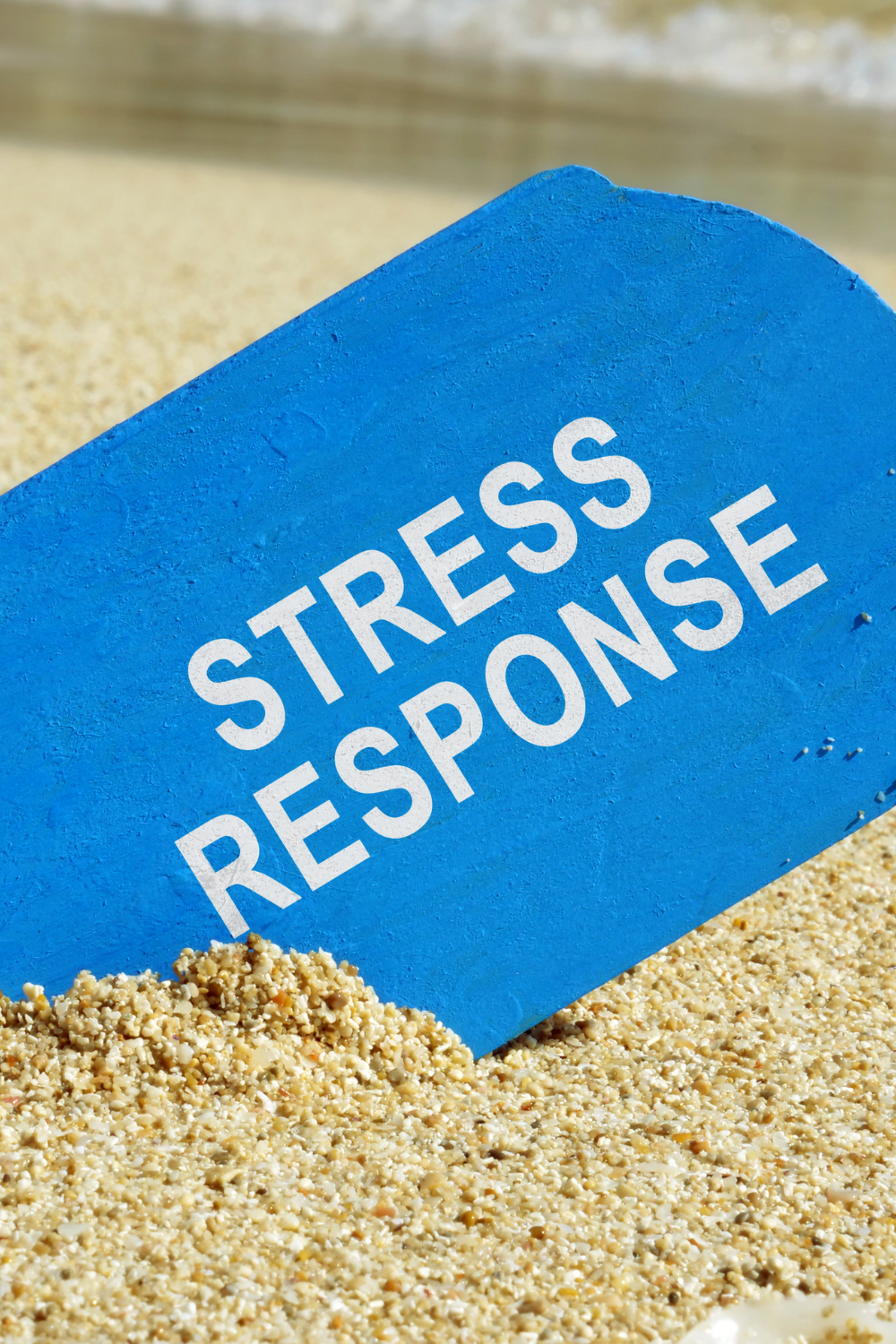I often speak about stress and trauma as an underlying cause of Mast Cell Activation Syndrome and chronic allergic reactions. In this blog post, I will explain in detail how the two correlate. We will delve deep into the entangled relationship between fight/flight and allergic reactions, and unravel the intricate mechanisms that connect these two phenomena.
Understanding the Fight/Flight Response:
The Fight/Flight response, also known as the stress response, is a natural reaction triggered by perceived threats or stressful situations. It involves a complex interplay of physiological and psychological processes, ultimately preparing our bodies for action. When our brain detects danger or stress, it triggers a cascade of physiological changes. The hypothalamus, a small region in the brain, sends signals to the adrenal glands, which release stress hormones like adrenaline (epinephrine) and cortisol, which are designed to cope with the perceived imminent threat.
Adrenaline rapidly surges through the bloodstream, causing various physiological responses. Heart rate and blood pressure increase, blood flow redirects to vital organs and muscles, and the senses sharpen. Meanwhile, cortisol mobilizes energy reserves and dampens non-essential functions like digestion and immune responses.
Allergic Reactions: An Intricate Symphony
Now that we have a fundamental understanding of the fight/flight response, let’s explore how this fight/flight response orchestrates an intricate symphony of events with allergic reactions. Allergic reactions occur when the immune system mistakenly identifies harmless substances, such as pollen or certain foods, as potential threats. The immune system then mounts an exaggerated response, releasing a cascade of chemicals, predominantly histamine, from specialized cells called mast cells.
Histamine, a potent inflammatory mediator, initiates a series of physiological changes aimed at combating the perceived threat. These changes include itching, redness, swelling, increased mucous production, smooth muscle contraction (including in the lungs), vomiting, diarrhea, anaphylaxis, and more. Remarkably, these responses closely mirror the effects induced by the fight/flight response.
The Overlapping Pathways: A Closer Look
In order to fully comprehend the connection between the fight/flight response and allergic reactions, let’s examine the overlapping pathways in greater detail:
- Direct Activation of Mast Cells: Stress hormones, especially adrenaline, can directly bind to receptors on mast cells, leading to their activation. This direct interaction triggers the release of histamine and other chemical mediators, thereby intensifying allergic reactions and exacerbating symptoms.
- Stress and Immune Sensitivity: Stress, both acute and chronic, can sensitize the immune system, lowering the threshold at which allergic reactions occur. When the body is under stress, immune cells become more reactive, heightening the likelihood and intensity of allergic responses.
- Neurotransmitters and Immune Interplay: Neurotransmitters, such as norepinephrine and serotonin, play pivotal roles in both fight/flight response and the regulation of immune responses. These neurotransmitters can influence immune cell behavior, inflammation, and histamine release, potentially impacting the severity of allergic reactions.
- Barrier Dysfunction: Stress can impair the integrity of the skin, gut lining, and respiratory epithelium, compromising the body’s protective barriers. This barrier dysfunction allows allergens to penetrate more easily, triggering heightened immune responses and exacerbating allergic reactions. \
Managing Allergic Reactions in the Context of the Fight/Flight Response:
Armed with a deeper understanding of the interplay between the fight/flight response and allergic reactions, we can now explore strategies to manage and minimize the impact of stress on chronic allergies, and even learn how to eliminate the body’s fight/flight response to allergic triggers:
- Stress Reduction Techniques: Incorporates stress reduction practices into your daily routine, such as mindfulness meditation, deep breathing, exercise, progressive muscle relaxation, tapping, and engaging in hobbies that make you happy and promote relaxation.
- Mind-Body Interventions: Explore mind-body interventions like yoga, tai chi, and biofeedback, which not aid in stress reduction but also promote overall well-being. These practices have been shown to modulate immune responses and may positively impact allergic reactions.
- Cognitive-behavioral therapy (CBT): CBT can help individuals with chronic allergies identify and modify stress-inducing thoughts and behaviors. By reframing negative thoughts and implementing effective coping strategies, CBT empowers individuals to better manage stress and potentially reduce the frequency and severity of allergic reactions.
- Pharmacological Interventions: Following the guidance of your healthcare professional is important as you work to manage and heal your allergic triggers.
- Desensitization: EBDT (Electromagnetic Body Desensitization Technique) retrains the brain-body response to allergic triggers by addressing the root cause of the reactions. It is a long-term process that alleviates the body’s fight/flight response that is causing or exasperating the allergic responses. Ultimately it recodes the way your body responds to all triggers.
In our exploration, we have begun to uncover the elaborate connection between the fight/flight response and allergic reactions. By elucidating the shared pathways, direct mast cell activation, stress-induced immune hypersensitivity, neurotransmitter interplay, and barrier dysfunction, we gain an understanding of why stress can influence, and even be the underlying cause of, chronic allergic reactions.
Armed with this knowledge, we can now strive to actively manage stress levels, adopt stress reduction techniques, and seek appropriate support from healthcare professionals. By embracing a holistic approach that addresses the interplay between stress and allergic reactions, we empower ourselves to begin to address the underlying reasons behind these reactions, allowing for the possibility that they are somewhat in our control.
Disclaimer:
Cindy Costley, Nutritionist/Desensitization Specialist, is not a medical practitioner and does not diagnose, treat, cure, or prescribe for any disease or medical condition. Recommendations in this blog are based on the opinion of Cindy Costley and are not meant to replace the care of a medical practitioner. Always consult your physician before changing your healthcare regimen.


